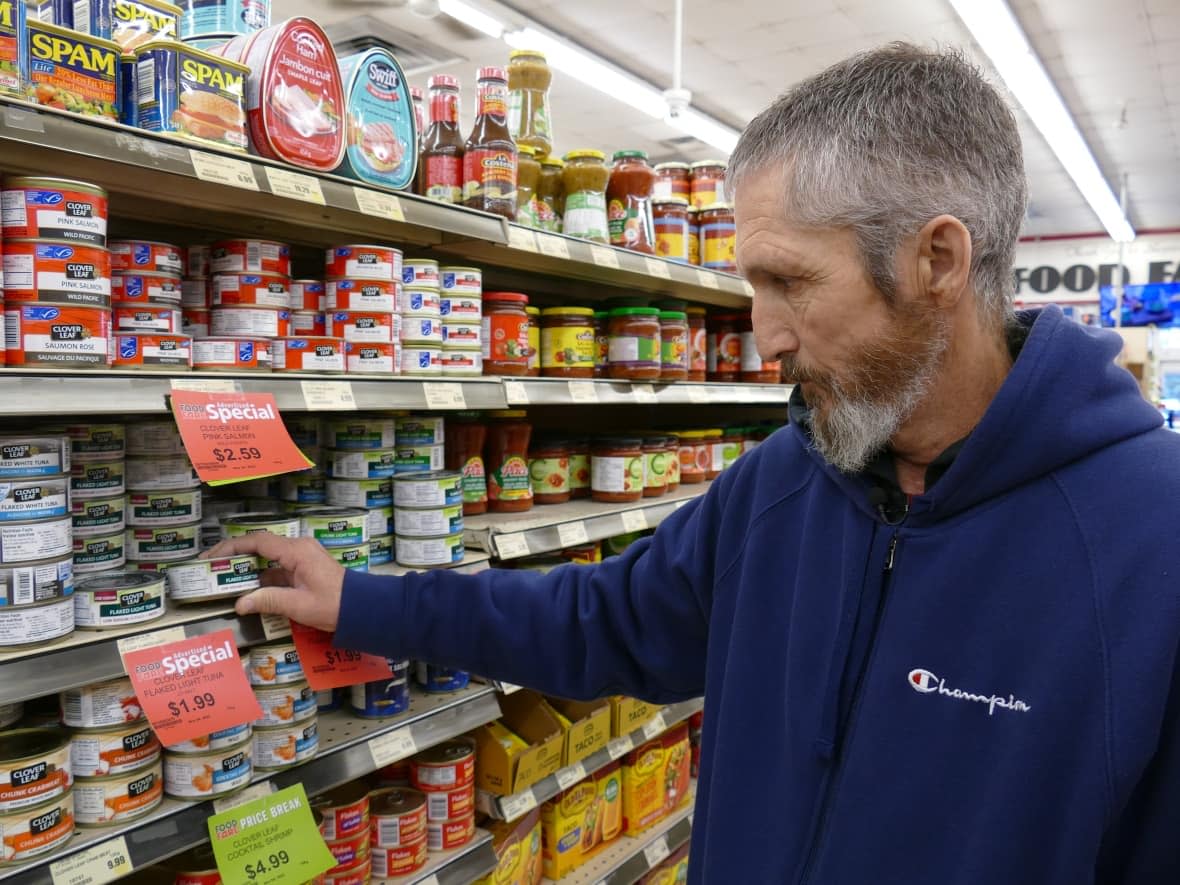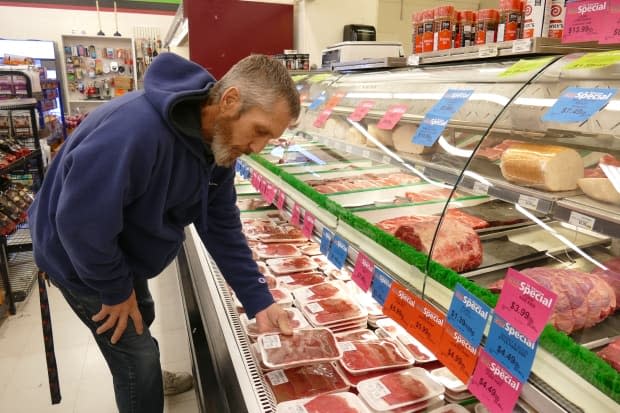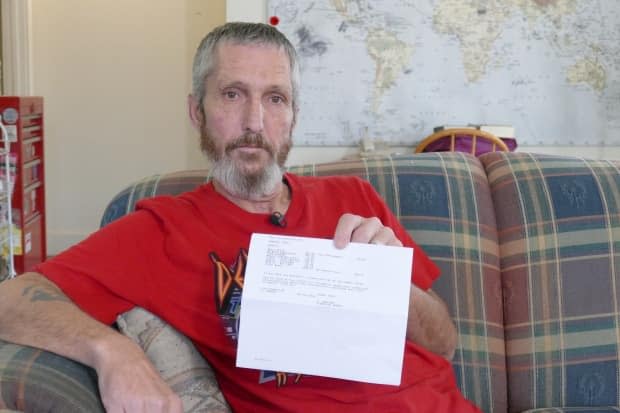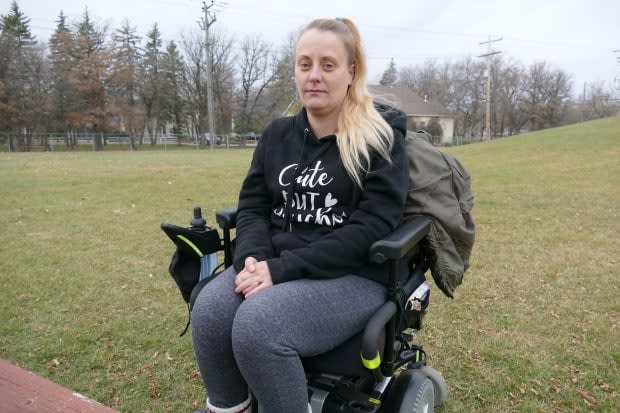Manitobans on disability now get $25 more a month, but as costs soar, some priced out of basic needs

Todd Donohue walks down the aisles of a Winnipeg grocery store, anxiously checking price tags and mentally doing math to ensure his weekly bill doesn't exceed about $4 a day on food.
The community advocate receives disability employment and income assistance. He has serious Crohn's disease, and lives off of bread, Kraft dinner and heads of lettuce, although he knows a better diet would help him better manage his symptoms.
As he approaches the meat aisle, he says,"Quite frankly, all of this is out of my price range. It's just too expensive. If I have a couple of extra dollars, I might buy a pack of bologna."
Donohue and more than 25,000 other Manitobans have started to see their monthly disability assistance cheques go up by $25. For Donohue, that means his monthly income went from $1,095 to $1,120 per month.
He says the increase is negligible, because with the high cost of living and his already low income, $25 won't stretch very far.

"Right now we are so far below the poverty line, we don't even see the poverty line," he said, speaking for people who are on disability.
"You have to pick and choose: Pay a bill or buy food, pay rent for a roof over your head or pay hydro or buy food. Everybody is making these choices every month because it's that difficult to survive."
This bump in assistance comes after the province announced an $87-million family affordability package in August. Of that, about $8 million is going to people who receive Employment and Income Assistance, or EIA , of which there are 38,619, according to the latest report from Manitoba Families.
General EIA assistance clients without dependent children will receive an extra $50 per adult each month. Those on disability assistance will receive $25 per household each month.
Prior to this bump, disability rates haven't increased in 10 years, according to Make Poverty History Manitoba.
Desiree McIvor, the spokesperson for the coalition, says people are pleased to have a few extra dollars in their pockets, but agree it's not nearly enough to keep up with higher prices for everything.
"Considering that the price of groceries have gone up, gas has gone up, everything else is going up, and to only have an extra [$25] for the people who are the most vulnerable is a slap in the face," she said.
Disability increase a 'gut punch'
Ashley Preece has been on disability EIA for seven years after being diagnosed with chronic fatigue syndrome, a neuroimmune disease.
Preece, who uses a wheelchair, receives discounted Meals on Wheels, but can still only afford them four days of the week.
During the pandemic, the grocery delivery service she relied upon for additional meals became more expensive, so she had to cut back on food.

"I'm left with mostly canned goods or easy things like cereal," she said.
In August when the province announced the bump in assistance, Preece assumed people on disability would receive $50, plus an additional $25.
"When I found out that we were receiving less than basic EIA, that was like a punch in the gut. I felt like people with disabilities are just being ignored."

Families Minister Rochelle Squires says the province is working to address the basic needs of those living on assistance. On Monday, she announced an additional measure to help people who receive assistance offset rent.
Rent assist, which is provided as part of regular monthly benefits to EIA clients renting in the private market, is currently based on 75 per cent of the median market rent
The rate will go up to 77 per cent in January, which the province says will result in maximum monthly benefits rising between $34 and $70, depending on the size of the household.
"This is in addition to the $50 increase offered [to general assistance EIA clients] making it the largest increase to EIA in over four decades," she said.
Even so, Donohue says his health problems are sometimes made worse by his inability to afford nutritious food.
"Quite frequently I'm hospitalized just from my Crohn's disease flaring up because I ate something that I wasn't supposed to eat, but it was something that I could afford," he said.
Donohue worries if food prices go up much more, he won't be able to afford what he can now.
"In a year's time who knows what the what the prices of food is going to be and that will shut me out and shut people in my position out of buying even more healthier foods. It's just going to be horrible."


